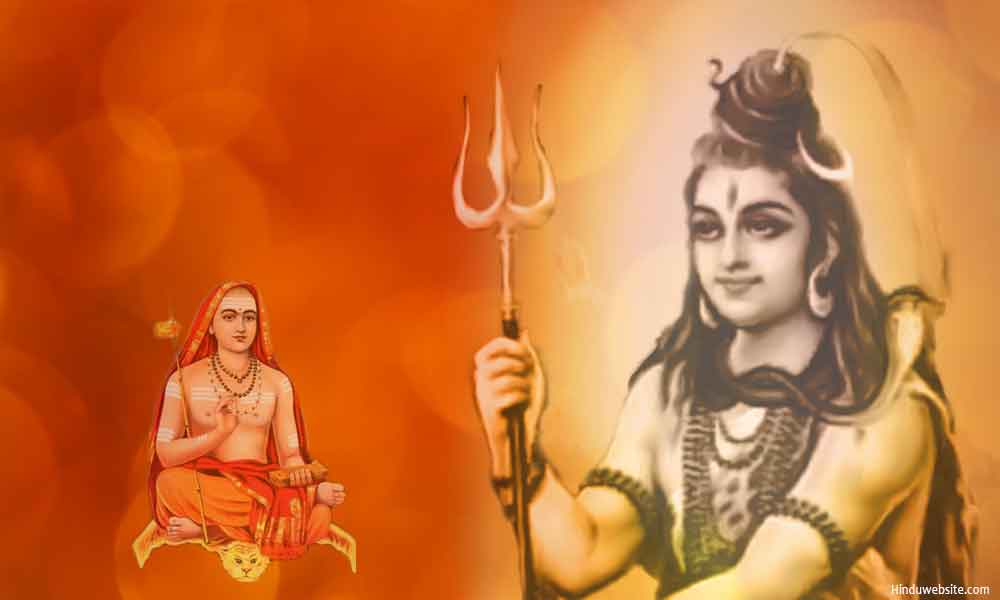
Sadhana Panchakam, Instruction 26

Index | Intro | 1 | 2 | 3 | 4 | 5 | 6 | 7 | 8 | 9 | 10 | 11 | 12 | 13 | 14 | 15 | 16 | 17 | 18 | 19 | 20 | 21 | 22 | 23 | 24 | 25 | 26 | 27 | 28 | 29 | 30 | 31 | 32 | 33 | 34 | 35 | 36 | 37 | 38 | 39 | 40 | Read with Kindle Unlimited |
4.2 Every day take the medicine of alms
The body is an abode the self. It is made up of parts (tattvas) of Nature, which are perishable, impermanent and mutable. Hence, not for the love of the body but for the sake of the self it has to be nourished and protected against sickness, decay and death. A yogi shall not derive pleasure from eating food, nor shall he treat food as a source of enjoyment. He shall look upon it as a form of medicine which cures the sickness called hunger in the body.
Hunger is universal. All beings who are born upon earth are subject to it. As the Brihadaranyaka states, the whole world is enveloped in Death and hunger. Hunger is a variant of Death only since prolonged hunger leads to death only. It is averted by food only. Thus, Shankaracharya’s comparison of hunger to sickness and food to medicine is well justified. Death can come in many forms. Sometimes it can come as food and sometimes as hunger. Sometimes it may also come as a punishment or a blessing.
By treating food as a medicine rather than a source of enjoyment, a yogi can restrain his sense of taste and eat food with detachment and indifference. In renunciation you cannot have preference for particular type of food. Since you have to rise above likes and dislikes or attraction and aversion, you have to accept what is given. However, if the food which is given to you is not acceptable according to your vows, you can give it to others who may accept it and forgo food for the day. Vedic tradition largely resolved the problem by imposing certain restrictions upon what type of food could be prepared and served as a sacrifice to renouncers since they cannot exercise choice or have any preference.
They advise householders to prepare and serve only sattvic food, which is fit for gods and which promotes sattva or divine nature. The Bhagavadgita lists three types of food according to the preponderance of gunas. Of them, sattvic food is considered the best since it promotes purity and virtuous qualities and ensures the practice of Dharma. Lord Krishna not only advises his devotes and seekers of liberation to eat sattvic food which is auspicious, pure and pleasing to gods but also suggests that they should eat it only after offering it to God.
By that offering, the food becomes pure as all the impurities in it are removed by God himself. By practicing Dharma and abiding in it, they earn the grace of God and a place in his heaven. Imposing such restrictions upon people, the tradition ensured that those who sought food through begging received only sattvic food which was fit for spiritual practice and self-purification. It served not only as a medicine for the body but also as a purifier with the ability to remove the impurities in it and promote the development of virtuous qualities such as righteousness, auspiciousness, sameness, detachment, dispassion, etc.
Suggestions for Further Reading
- Ashtavakra Samhita Translation and Commentary
- The Wisdom of the Bhagavadgita
- The Wisdom of the Upanishads
- 22 Minor Upanishads
- Shiva Sutras, The Aphorisms of Shiva
- The Yoga Sutras - A Brief Summary by Chapter
- Atmabodha - Knowledge of Self
- Yoga Vashisht, The Abridged Version
- Gitanjali - By Tagore
- Confucian Analects
- The Garuda Purana
- How To Remain Steadfast on the Spiritual Path
- Famous Quotations on Spirituality
- Basic Spirituality for Worldly People
- How To Find Peace Within Yourself
- The Self or Soul As Pure Consciousness
- Self-knowledge, Difficulties in Knowing Yourself
- Moksha or Liberation in Hinduism
- Types of Knowledge or Jnana in Hinduism
- Essays On Dharma
- Esoteric Mystic Hinduism
- Introduction to Hinduism
- Hindu Way of Life
- Essays On Karma
- Hindu Rites and Rituals
- The Origin of The Sanskrit Language
- Symbolism in Hinduism
- Essays on The Upanishads
- Concepts of Hinduism
- Essays on Atman
- Hindu Festivals
- Spiritual Practice
- Right Living
- Yoga of Sorrow
- Happiness
- Mental Health
- Concepts of Buddhism
- General Essays